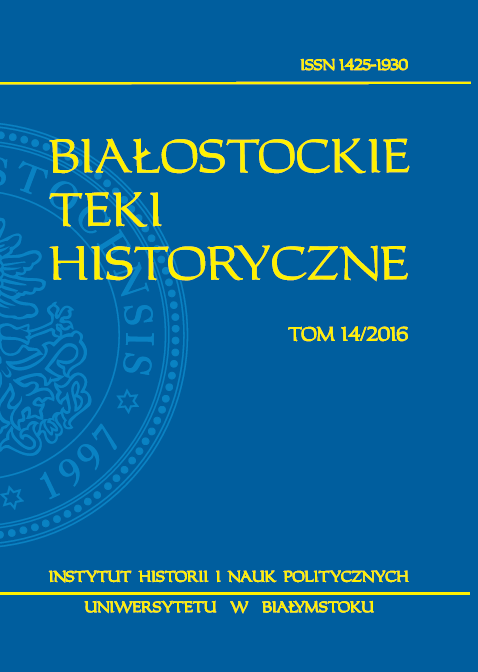Żydowska społeczność Białegostoku u schyłku swego istnienia (1950–1970)
Jewish community in Białystok at the decline of its existence
Author(s): Joanna SadowskaSubject(s): History, Jewish studies, Local History / Microhistory, Post-War period (1950 - 1989)
Published by: Wydawnictwo Uniwersytetu w Białymstoku
Keywords: Jews; Białystok; Social-Cultural Association of Jews in Poland; ghetto uprising in Białystok
Summary/Abstract: Białystok, which before 1939 was known as an important centre of Jewish life in Poland, in the years to follow – because of the war – stopped to be a Jewish hub. The majority of those citizens of Białystok who had survived the Holocaust, decided to abandon the ruined city which evoked bad memories. They were leaving the city gradually and, due to this process and the decisions of the communist authorities, the activities of Jewish institutions were languishing. After 1950 in the city there were fewer than 200 people who identified themselves as Jews and some of them still intended to leave the country. A department of the government-controlled Social-Cultural Association of Jews in Poland and (until 1954) a denominational congregation constituted the only still functioning Jewish institutions. The most important goal of the Jewish community was to organise celebrations commemorating subsequent anniversaries of the ghetto uprising in Białystok (1943). Limited cultural and self-helping activities were also conducted. The local Jewish community ceased to exist after 1968, when a considerable number of Polish Jews was forced to emigrate. Those who remained were mainly elderly people, who did not conduct any social activities. In the 1970s almost all of the still existing traces of Jewish presence in the city were obliterated. When, in the next decade, a wave of renewed interest in the Jewish culture came, not very numerous Poles were involved in Białystok.
Journal: Białostockie Teki Historyczne
- Issue Year: 2016
- Issue No: 14
- Page Range: 221-243
- Page Count: 23
- Language: Polish

